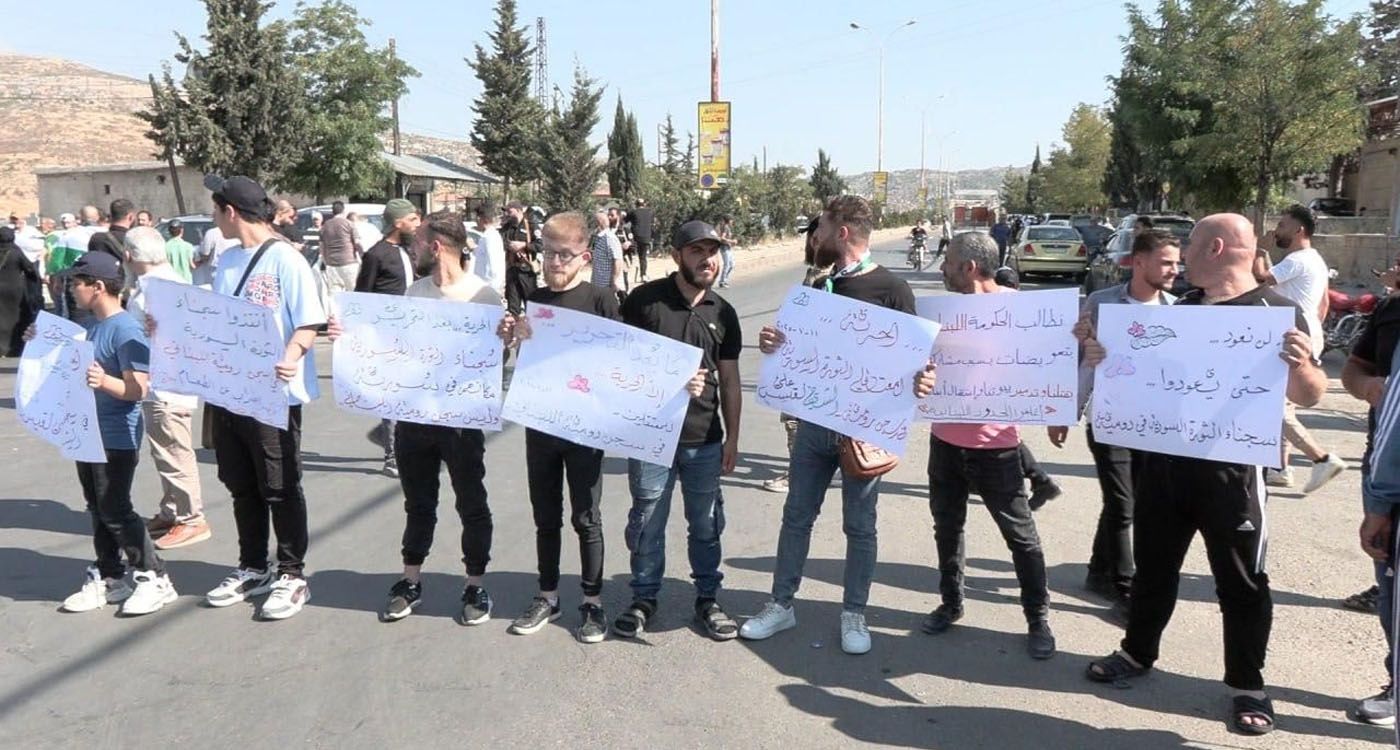
The issue of Syrian prisoners in Lebanon has resurfaced, alongside that of Islamist detainees, many of whom have been held for years without trial or clear charges. This tragic reality highlights a blatant pattern of ongoing political and judicial injustice, where hundreds of individuals are denied their most basic legal and human rights under pretexts that are alternately political and procedural.
Detained Without Charges… and an Absent Justice
Lebanese prisons are overcrowded with thousands of detainees, including around 2,000 Syrians, most of whom are supporters of the Syrian revolution — now recognized by the international community as Syria’s legitimate authority. Yet, the treatment they receive from the Lebanese state remains heavily influenced by internal political considerations, especially by Hezbollah, which staunchly opposes this authority and was a key ally of the Assad regime in its crackdown on the Syrian people.
As for Islamist detainees in Lebanon, many were arrested based on mere suspicion and have languished in prison for years without trial. This situation is a flagrant violation of the fundamental principle of the presumption of innocence, turning prisons into tools of political revenge rather than instruments of justice.
Silent Messages… Loud and Clear
Recently, leaks have suggested that Syrian authorities are growing frustrated with Lebanon’s delay in repatriating Syrian detainees. Potential political and economic measures against Beirut were reportedly discussed. Although Damascus officially denied these reports, the message seems to have landed — as the saying goes, “Where there’s smoke, there’s fire.”
The Hannibal Gaddafi Case: A Symbol of Judicial Chaos
The plight of Syrian detainees finds a striking parallel in the case of Hannibal Gaddafi, who was kidnapped in Syria under Bashar al-Assad’s regime and has been detained in Lebanon ever since without formal charges. The most absurd part: he is allegedly linked to the disappearance of Imam Moussa Sadr… in 1978, when he was just a one-year-old infant.
Lebanese Authorities: Willing to Cooperate, But Legally Constrained…
Official sources insist that the issue of Syrian detainees is under active political, judicial and security review, and that Lebanon is willing to cooperate on their repatriation in accordance with the law. However, the legal reality is bleak: most of these detainees have never been tried. As a result, their extradition is legally impossible — a legal absurdity that has turned into a human tragedy and a stain on the Lebanese justice system.
A senior prison official revealed that the judicial-security committee in charge of the case has indeed processed hundreds of files, but faces one major legal hurdle: "No detainee can be repatriated without a final court ruling." This rule is now working against innocent individuals, keeping them indefinitely behind bars.
Families’ Pleas: Save Them from a Double Injustice
In light of this deadlock, the families of Syrian detainees have repeatedly appealed to Syrian President Ahmad al-Sharaa to expedite their repatriation and trial in their home country. It’s a legitimate and humanitarian demand, especially given that the collapse of the Lebanese justice system blocks any hope of fair treatment.
A recently released former detainee recounted having spent two years in prison without trial, only to be acquitted in the end. He received no compensation, and no officials were held accountable.
Reforming the Justice System: A More Urgent Priority Than the Banks
Ultimately, the issue of prisoners can no longer be separated from the systemic crisis plaguing Lebanon’s judiciary — one crippled by political interference, institutional paralysis and a lack of independence. A country that imprisons thousands without trial and subordinates justice to partisan and sectarian interests is a country teetering on the edge of moral and legal collapse.
What’s most alarming is that the problem extends beyond just the detainees: it threatens Lebanon’s very identity as a state governed by the rule of law.
In the end, reforming Lebanon’s judiciary must become an absolute national priority — perhaps even more urgent than fixing the banking sector. A paralyzed justice system only fuels chaos.



Comments